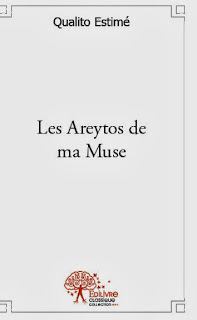Que signifie un nom ? Ces derniers mois je passe
beaucoup de temps à réfléchir sur l’importance culturelle des prénoms. Mes deux
fils ont comme deuxième noms Dessalines (l’aîné) et Toussaint (le cadet).
Certes, l’ordre historique est renversé, mais quand on a donné son nom au
premier, je ne m’attendais jamais à avoir deux garçons !
Ce choix de noms invite beaucoup de commentaires. Un
jour, au magasin je disais d’une voix forte: « Dessalines et Toussaint—soyez
sages ! » À ce moment un étranger
(d'origine haïtienne) se tourna vers moi stupéfait : « Dessalines
et Toussaint! ? Quels grands noms pour de tels petits garçons! »
Mon beau-frère, quant à lui, était scandalisé d’apprendre
la mort tragique de Papa Dessalines et m’a demandé pourquoi avoir choisi ce
nom.
Pas de confusion chez le grand-père qui annonce la
naissance de son petit-fils ainsi : « Dessalines Jean-Charles Asare
est né aujourd’hui, levons un verre à la gloire de Fabias. » La réponse d’un oncle vivant en Belgique à ce message était d'écrire un petit poème pour fêter l’occasion :
A la kontan, nou kontan
tande ke nan fanmi-an gen yon Dessalines
Jean-Charles ASARE ki la.
Anpil konpliman pou granparan
yo ki tèlman kontan.
Nou konprann fyète yo.
Sa fè konbyen pitit
pitit ki la.
Levons tous nos verres
pour saluer son arrivée.
| Dessalines et Toussaint |
(Notons la manière dont le deuxième nom devient prénom
pour nos relations haïtiennes…). Cette fierté vient du fait que notre famille est
originaire de Marchand-Dessalines.
En ce qui leur concerne, mes petits commencent à comprendre la signification de ces noms. Voyant les gros tableaux de Dessalines et Toussaint à la maison de leurs grands-parents en Haïti, ils étaient émerveillés du fait qu’ils portaient les noms de ces deux hommes historiques. En tant que fille d’immigrés 1e génération née lòt bò--cela m’importe beaucoup que je sois capable de transmettre à cette génération, encore plus éloignée du pays d’origine, un sens de leur héritage haïtien.
En attendant mon troisième enfant, une petite fille cette fois-ci, je me trouve encore à contempler cette question du nom et de son importance dans notre identité culturelle. Comme j’ai posé la question sur Facebook il y quelques mois—Anacaona ? Marie-Jeanne ? Catherine Flon ? Claire-Heureuse ? Quel nom historique pour cette petite sœur de Dessalines et Toussaint ? Choix difficile. D’abord, mon mari (d’origine Ghanéen) est contre les noms « trop français », alors pas de Marie-Jeanne, Catherine ou Félicité dans notre famille. Quand j'ai posé la question sur Facebook, il y a quelques mois, j'ai reçu plusieurs réponses. Une cousine à Port-au-Prince suggère Ayiti tout court. Une collègue me propose Taina, encore un autre suggère le nom d’une héroïne littéraire telle Sophie Caco ou même le nom de l’écrivain Danticat elle-même ! Comment choisir ? Le temps presse !
En ce qui leur concerne, mes petits commencent à comprendre la signification de ces noms. Voyant les gros tableaux de Dessalines et Toussaint à la maison de leurs grands-parents en Haïti, ils étaient émerveillés du fait qu’ils portaient les noms de ces deux hommes historiques. En tant que fille d’immigrés 1e génération née lòt bò--cela m’importe beaucoup que je sois capable de transmettre à cette génération, encore plus éloignée du pays d’origine, un sens de leur héritage haïtien.
En attendant mon troisième enfant, une petite fille cette fois-ci, je me trouve encore à contempler cette question du nom et de son importance dans notre identité culturelle. Comme j’ai posé la question sur Facebook il y quelques mois—Anacaona ? Marie-Jeanne ? Catherine Flon ? Claire-Heureuse ? Quel nom historique pour cette petite sœur de Dessalines et Toussaint ? Choix difficile. D’abord, mon mari (d’origine Ghanéen) est contre les noms « trop français », alors pas de Marie-Jeanne, Catherine ou Félicité dans notre famille. Quand j'ai posé la question sur Facebook, il y a quelques mois, j'ai reçu plusieurs réponses. Une cousine à Port-au-Prince suggère Ayiti tout court. Une collègue me propose Taina, encore un autre suggère le nom d’une héroïne littéraire telle Sophie Caco ou même le nom de l’écrivain Danticat elle-même ! Comment choisir ? Le temps presse !
RMJC








